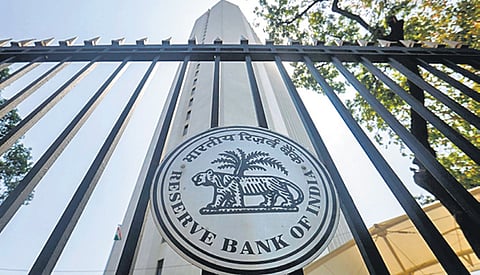

BENGALURU: To enhance the security of digital payments, the Reserve Bank of India (RBI) in its recent Monetary Policy Meeting (MPC) announced a principle-based framework for authentication of digital payment transactions and also announced a revised regulatory framework for electronic trading platforms (ETPs), among others. Experts say this will enhance security and also provide improved user experience.
RBI governor Shaktikanta Das said, “Over the years, the Reserve Bank has proactively facilitated introduction of various mechanisms such as Additional Factor of Authentication (AFA) for securing digital payments. While no particular mechanism was specified by the Reserve Bank, SMS-based OTP has become very popular.” With technological advancements, however, alternative authentication mechanisms have emerged in recent years. SMS-based OTP for authentication is now quite popular but experts say this is not foolproof.
Aditya Gupta, Founder & CEO Credilio said, “The RBI’s authentication principle is quite beneficial for the consumers as it enhances safety which is a strong shield against potential frauds that give users peace of mind throughout their online transactions. There is an establishment of a reliable ecosystem for digital payments leading to trustworthiness and predictability in user experience. The underlying concept here is to develop confidence among the users thereby attracting more people into using cashless payments methods as well as promoting financial inclusion.”
Also, the central bank’s strict measures for authentication make it easier for customers who are afraid of being defrauded during an internet use to conduct their businesses without fear. Use of such enhanced technologies like biometric authentication has served to enhance user experience during this period by enabling them to navigate through transactions.
The RBI also announced a review of the Regulatory Framework for ETPs and that will be issued for stakeholders’ feedback. Earlier in 2018, the central bank issued a regulatory framework. It also proposed to streamline the process for on-boarding of Aadhaar Enabled Payment System (AePS) and enhance its robustness. This has played an important role in financial inclusion by enabling customers to make digital payment transactions through service providers such as business correspondents.
“This move, particularly the proposed streamlining of onboarding and additional fraud risk measures, addresses a crucial need: enhancing security and building trust in a system relied upon by millions, especially in rural and Tier II+ cities. Imagine smoother, more secure digital transactions across kirana stores and beyond.
That’s the promise of this innovative approach. Mandatory due diligence for AePS service providers and stricter fraud monitoring will be like adding layers of security to your online wallet,” said Rahul Jain, CFO, NTT DATA Payment Services India. This initiative is all the more important as AePS recorded a whopping 43.31 crore transactions in January 2024, playing a vital role in delivering essential government subsidies and benefits.
CBDC Pilot
The RBI announced the introduction of programmability and offline functionality in their CBDC (Central Bank Digital Currency) pilot program which is a step towards enhancing the functionality and usability of CBDCs.
“Existing CBDC pilots primarily focus on basic payment functionalities, limiting their use cases. Transactions often require internet connectivity, hindering adoption in areas with poor internet access. Additionally, CBDCs cannot currently be programmed for specific purposes, limiting their flexibility. With offline functionality, convenient payments are ensured, enabling seamless transactions even without internet access,” said Jain. Gaurav Goel, Founder - Director, Fynocrat Technologies, strongly believes that the CBDC is the future of India and the introduction of a sovereign digital currency such as the e-rupee holds the potential to elevate India’s digital payment landscape to new heights.
Also, CBDC systems, powered by blockchain technology, offer cost-effective alternatives to managing and distributing physical cash, with transaction costs among the lowest globally and the ability to facilitate real-time transactions round the clock.
Secure payments
RBI’s principle-based framework embraces a secure future for digital payments
The central bank proposes to streamline the process for on-boarding of AePS service providers
RBI’s extant regulatory framework for electronic trading platforms was issued in 2018
CBDC Retail pilot currently enables P2P and P2M transactions